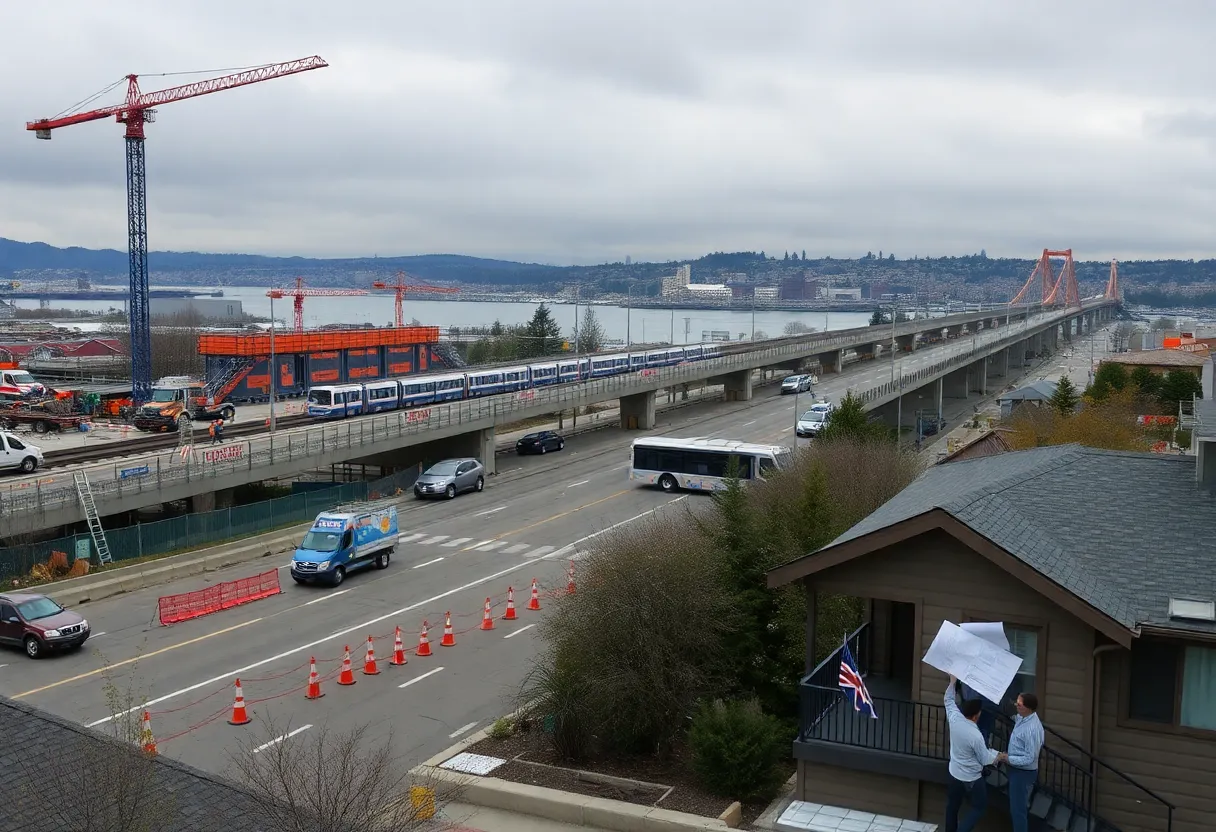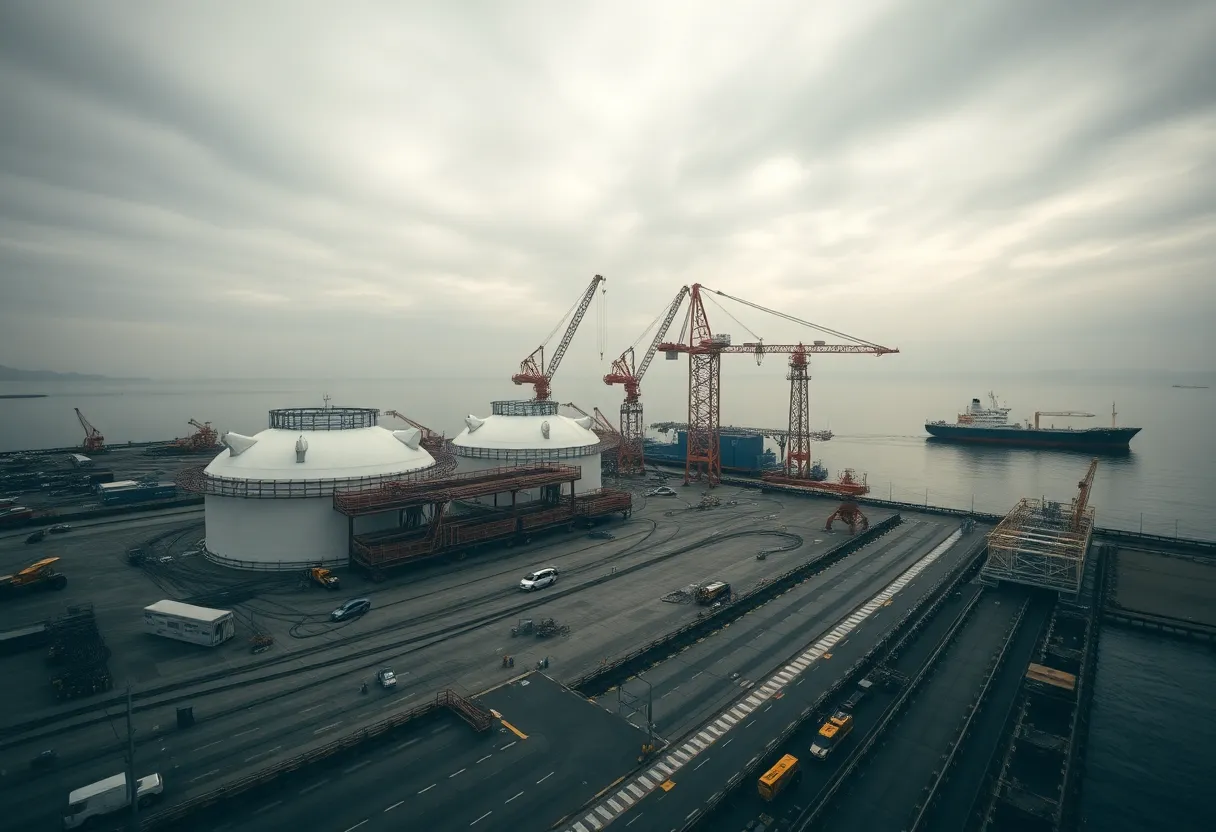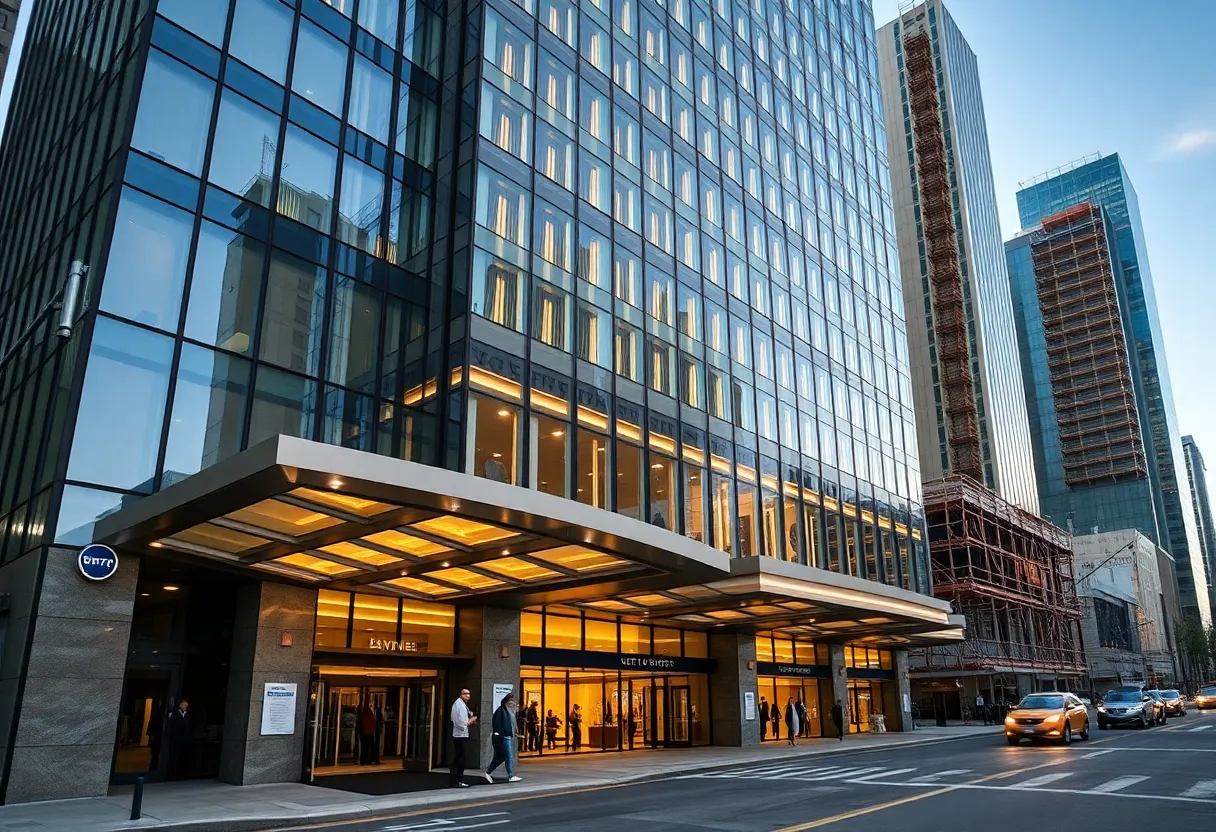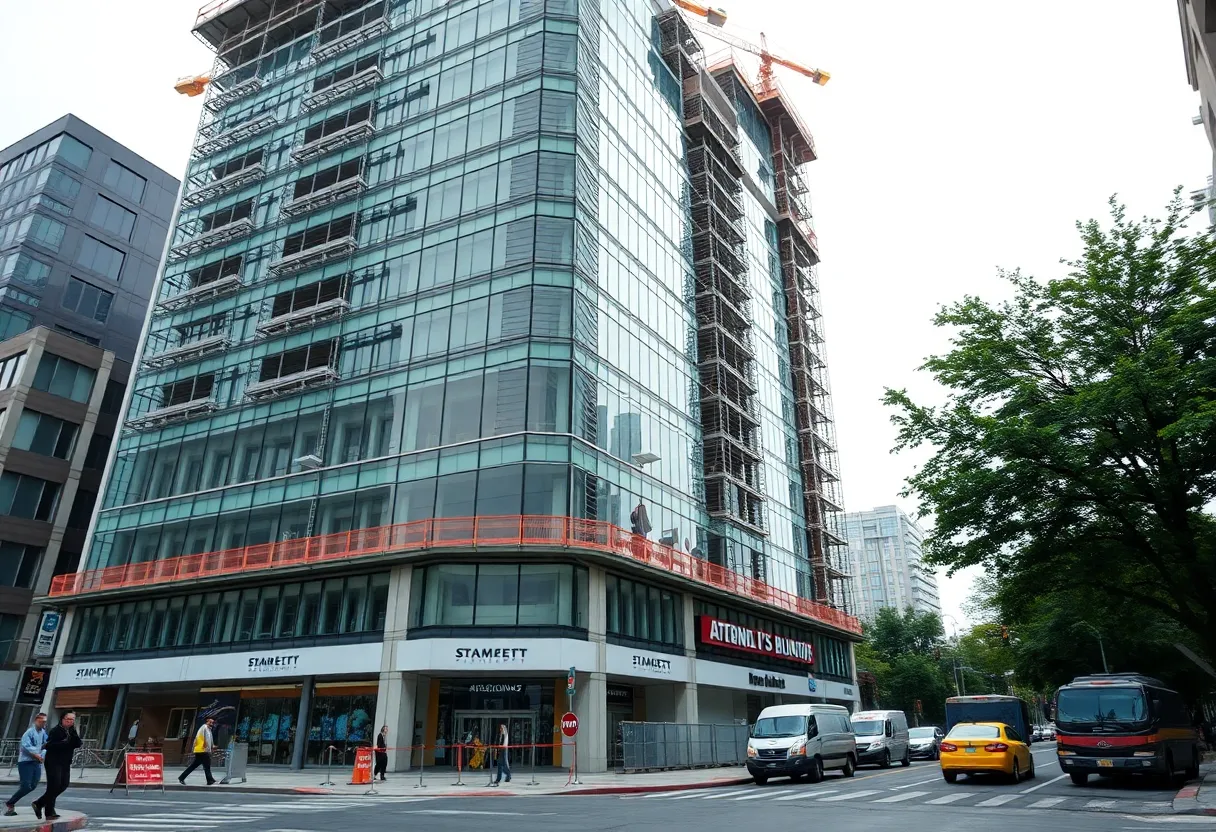Seattle, September 4, 2025
News Summary
This roundup offers homeowners a practical, step-by-step guide to hire a contractor, including defining scope, vetting, verifying licenses and comparing itemized quotes. It also covers Seattle project news: a major design firm was chosen for final design work on the West Seattle Link Extension, northbound I‑5 over the Ship Canal Bridge is reduced to two lanes for preservation work, and a local startup building quoting software for HVAC and home-service contractors raised $3.7M. Together these items highlight the importance of clear communication, accountability and local planning for better outcomes in homes and transit.
Seattle’s construction and transit landscape is advancing on several fronts. A Dallas-based design firm was selected to lead the Phase 1 design for a major light-rail extension that will connect SODO with West Seattle, while heavy work continues on the northbound I‑5 Ship Canal Bridge as part of a regional preservation effort. In the private sector, a Seattle startup focused on real estate technology has raised millions to help contractors quote work more efficiently. Separately, homeowners planning projects can benefit from a careful, step-by-step approach to hiring the right contractor, including credential checks, realistic timelines and clear budgeting.
West Seattle Link Extension design award and project scope
Sound Transit has awarded the contract for lead Phase 1 design and design validation of the West Seattle Link Extension to a national design firm. The 4.1‑mile extension will add a new bridge and a tunnel, linking Seattle’s SODO neighborhood with West Seattle’s Alaska Junction. Four new stations are planned along the route, and the project is expected to strengthen connectivity to residential and economic hubs while offering faster, more reliable service for riders. The overall project cost is estimated between $6.7 billion and $7.1 billion. The design work is expected to progress toward final design after regulatory approvals, with construction anticipated to begin in 2027 and service projected to start in 2032. The contractor’s background includes extensive transportation experience in the Puget Sound region, and the project builds on prior Sound Transit expansions in the Northgate and Eastlink corridors.
The development is seen as a potential catalyst for nearby development, including retail activity and affordable housing near station locations. Project planning for the extension began several years ago, and the route and station locations were selected in late 2024, with federal transit approval granted to move into final design. The arrangement places a high emphasis on delivering a reliable connection that supports continued growth in Seattle’s core neighborhoods.
I‑5 Ship Canal Bridge work and scheduled closures
A broad maintenance and preservation effort on the northbound lanes of I‑5 over the Ship Canal Bridge has included weekend work and a long-term lane configuration change. The project schedule began with a weekend closure window to prepare the corridor for ongoing work, including restriping, installation of drainage structures, and expansions joint prep. Maintenance teams also addressed lighting and pothole repairs during closures, and tunnel systems received inspections and related upgrades. Beginning in the following work period, the northbound I‑5 corridor will operate with two lanes around the clock through mid‑August, and the speed limit in the work zone will be reduced to 50 mph to reflect safety requirements.
In the coming weeks, about one‑fifth of the bridge deck is planned for resurfacing, with expansion joints replaced and drainage enhancements continuing. Express lanes will operate northbound only for capacity through mid‑August, while southbound drivers may see limited access to express lanes during morning hours and should allow for potential travel delays. A shift of work to the southbound lanes is anticipated for the fall and winter period, though specific southbound closure dates have not yet been announced. Public updates, including photographs and progress reporting, have been provided to keep travelers informed of upcoming changes.
EDEN and the Seattle startup funding round
In the private sector, a Seattle‑based real estate technology startup has raised significant funding to expand its software aimed at helping residential contractors, especially HVAC teams, generate instant, personalized quotes. The round secured $3.7 million in fresh capital, led by an investment firm focused on growth in the construction and home services space, with participation from additional venture groups. The company, founded in 2021, uses data such as home square footage, year built, equipment matches, and local rebates to streamline the quoting process, improve transparency for homeowners, and help contractors accelerate sales.
The leadership includes a founder and CEO who previously worked as an engineer at other technology companies. The venture now employs a small team and has accumulated total funding around $4.9 million to date. The round reflects continued investor interest in tech-enabled improvements to the home improvement and contracting markets.
Broader local tech and startup context
Seattle’s startup ecosystem continues to see activity in related sectors, including ventures aimed at construction technology and home services. In the recent period, several local teams raised funds to expand offerings that touch on field productivity, customer experience, and service delivery in the construction and home services space. Industry observers note that such funding rounds illustrate a broader trend toward software platforms that connect homeowners, inspectors, and tradespeople more efficiently, while larger infrastructure projects advance through design, permitting, and construction phases.
Guidance for homeowners hiring contractors: a practical framework
Across projects from siding replacements to major remodels, a careful approach helps homeowners minimize delays and cost overruns. A step‑by‑step process begins with clearly defining the project, including scope, goals, a realistic budget, and a preferred timeline. Decide whether a general contractor, a specialist, or a combination best fits the work. For example, a kitchen remodel may require cabinetry and plumbing expertise, while a new roof demands structural knowledge and weatherproofing skills. Local conditions in Seattle can influence contractor specialization, such as siding work adapted to climate and humidity or patio projects suited to suburban layouts.
A well‑defined vision—budget, timeline, and design preferences—helps homeowners communicate effectively and avoid misunderstandings. Practical steps include asking for referrals, checking online reviews and local forums for reputation insights, and verifying credentials through professional directories and licensing boards. Credential indicators such as specialized certifications and memberships in recognized trade associations often signal higher professionalism and commitment to quality.
Build a short list of at least three to five contractors to compare approaches, pricing, and communication styles. Ask about past projects similar in scope and review portfolios for quality and consistency. Request references and speak with former clients about communication, problem solving and deadlines. Ensure contractors hold the proper licenses and permits for your region and verify that they carry general liability and workers’ compensation insurance with proof of coverage before signing any contract.
Be cautious with pricing: the lowest bid may hide hidden costs or lower material quality. Obtain itemized quotes detailing labor, materials, permits, and potential additional expenses. Realistic project timelines typically reflect careful assessment of requirements and resources, whereas promises of unusually fast completion can indicate compressed schedules or rushed work. Prioritize clear, timely communication from the start and ask how day‑to‑day project management will be handled, including updates and milestones.
In summary, a deliberate, transparent process—starting with a precise needs assessment, followed by thorough vetting, credential verification, and careful price and schedule comparisons—helps homeowners find capable professionals who deliver lasting, high‑quality results.
FAQ (Frequently Asked Questions)
- What is the West Seattle Link Extension? The project is a light‑rail extension designed to improve regional connectivity by linking SODO and West Seattle with four new stations along a 4.1‑mile route, including a bridge and a tunnel.
- When will construction start and when is service expected? Construction for the extension is planned to begin in 2027, with service anticipated to begin in 2032.
- Who is leading the design work? A national design firm was selected to lead Phase 1 design and design validation for the West Seattle Link Extension.
- What is happening with I‑5 Ship Canal Bridge work? Northbound I‑5 through Seattle will be reduced to two lanes around the clock for a period, with a 50 mph limit in the work zone, while maintenance and resurfacing are completed in the coming weeks and months.
- What is EDEN and why is it raising funds? EDEN is a Seattle‑based real estate software startup focused on helping residential contractors generate instant quotes; the funding supports product expansion and customer acquisition.
- What should homeowners do to hire a contractor? Define the project clearly, determine whether a general contractor or specialists are needed, assemble a shortlist, verify licenses and insurance, request itemized quotes, and assess communication and timeline expectations.
Key features at a glance
| Feature | Details |
|---|---|
| West Seattle Link Extension design lead | Lead Phase 1 design and design validation; 4.1 miles; 4 stations; new bridge and tunnel; service expected 2032. |
| I‑5 Ship Canal Bridge work status | Northbound lanes reduced; 50 mph limit; 20% deck resurfacing; drainage upgrades; express lanes capacity management. |
| EDEN funding round | $3.7 million raised; lead investor Climactic; supports quotes for HVAC contractors using local data. |
| Contractor hiring guidance approach | Define project, determine contractor type, qualify credentials, demand itemized quotes, verify licensing/insurance, assess timelines and communication. |
| Local startup activity context | Seattle startups raising funds in construction tech and home services sectors; funding signals ongoing innovation in the field. |
Deeper Dive: News & Info About This Topic
Additional Resources
- The Seattle Times
- Wikipedia: Labor shortage
- Construction Dive
- Google Search: West Seattle Link Extension
- KING 5
- Encyclopedia Britannica: Ship Canal Bridge
- GeekWire
- Google News: EDEN startup Seattle
- Daily Journal of Commerce (Seattle)
- Google Scholar: Hiring contractors best practices





